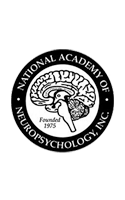
DAWn AMY OSTERWEIL, PH.D., ABPP
I am a Licensed Psychologist (CA PSY13262) in the State of California with over 25 years of experience specializing in clinical psychology and clinical neuropsychology. I have focused my career on the evaluation and treatment of individuals with both mental health and medical conditions, especially those who have survived traumatic brain injury. I have had a diverse practice, working in inpatient, outpatient, and day treatment settings, as well as in private practice. I formerly served as Director of Rehabilitation Neuropsychology at two Bay Area hospitals, where I worked with a team of rehabilitation specialists and conducted psychotherapy, neuropsychological evaluation, consultation with families, neuropsychological intervention, and supervision of other neuropsychologists. I also co-developed and participated in multiple, annual conferences on traumatic brain injury and conducted in-services on both psychological and neuropsychological issues in the rehabilitation setting. I am a Professional Member of the American Psychological Association, National Academy of Neuropsychology, American Board of Professional Psychology, American Board of Clinical Neuropsychology, and the American Academy of Clinical Neuropsychology. I am a Board Certified Clinical Neuropsychologist currently conducting both consultation and evaluation in my private practice in San Francisco. My referrals come from other mental health care and medical professionals, schools, and attorneys. I evaluate individuals who are suffering from psychological trauma and/or neuropsychological impairments due to accident, illness, traumatic brain injury, stroke, neurodegenerative disorder, loss of limb, spinal cord injury, pain, loss of loved ones, discrimination/harassment in the workplace, and catastrophic event (such as, airline crashes, gas explosions, captivity and torture).
PHILOSOPHY OF PRACTICE
Whether I am consulting with or evaluating someone in a clinical situation or in the context of litigation, I conduct the same, comprehensive evaluation with the commitment to providing ethically, professionally, and evidence-based conclusions. Each person that walks through my office door is someone who is there to clarify their strengths and weaknesses, to understand their problems more keenly, and to be heard and listened to as they share their histories, traumas, and current concerns. I value each individual and acknowledge that my conclusions will have an impact on their personal lives. I am also committed to keeping up with the current literature in the field and to presenting my findings to clients and/or referral sources in the context of that knowledge. I recognize that this commitment is not just to reviewing literature from the perspective of neuropsychology, but also from a multiplicity of references that provide the most comprehensive knowledge base about each specific and case-relevant topic.
BOARD CERTIFICATION
The National Academy of Neuropsychology, which defines itself as “a vibrant organization of scientist-practitioners, clinicians, and researchers in the field of neuropsychology,” with current membership of over 3300 active members in 24 different countries recognizes “that successful completion of a rigorous peer examination of neuropsychological knowledge and skill through board certification provides the clearest evidence of competence to practice clinical neuropsychology.”
I am a Board Certified Clinical Neuropsychologist through the American Board of Professional Psychology and The American Board of Clinical Neuropsychology. In order to become Board certified, I underwent a rigorous credential review, ensuring that I have a doctoral degree, completed supervised experience in the field of neuropsychology, and have a license to practice. In addition, I had to demonstrate educational experience in 8 core knowledge areas:
Basic neurosciences
Functional neuroanatomy
Neuropathology
Clinical neurology
Psychological assessment
Clinical neuropsychological assessment
Psychopathology
Psychological intervention
Once the credential review was complete, I took a 100-item written examination across topics of Neuropsychological Assessment, Clinical Neuropsychology, Basic and Clinical Neurosciences, Behavioral (Clinical) Neuropsychology, and General Clinical Psychology. Successful completion of the written exam was followed by submission of two clinical reports with accompanying test data reviewed by 3 Board certified specialists. My practice samples were approved, and then I was eligible to sit for the oral examination. The oral examination consisted of three parts: 1) Practice sample examination, in which an examiner questioned me about my cases, including my rationale and approach to assessment, interpretation, and conclusions, as well as diagnostic, scientific, or other practice-related issues; 2) Ethics and professional issues, in which I was given a vignette and asked to provide an ethical analysis of the issues in the case; and 3) Fact finding examination, in which I was given a vignette and was evaluated on my ability to illicit all the clinical information (history, test results, etc.) necessary to formulate accurate conclusions and differential diagnosis.

CLINICAL Services
NEUROPSYCHOLOGICAL EVALUATION
According to the American Academy of Clinical Neuropsychology:
“Clinical neuropsychology is a specialty field within clinical psychology, dedicated to understanding the relationships between brain and behavior, particularly as these relationships can be applied to the diagnosis of brain disorder, assessment of cognitive and behavioral functioning, and the design of effective treatment.”
My background as a clinical psychologist informs my work in neuropsychology and vice versa. I don’t take one hat off and put the other one on when conducting evaluations. No one person is defined solely by their mood or their brain injury or their emotional trauma, and it is my goal to understand the interplay between psychological and neurological issues in order to make accurate differential diagnoses and to provide the most effective treatment recommendations.
A neuropsychological evaluation consists of history taking through record review (academic, occupational, medical, and psychiatric) and in-depth, clinical interview. It is also important to gain insight about a person’s history and current functioning through interviews with family members, friends, and/or professional contacts. In addition, the comprehensive neuropsychological examination includes administration of standardized tests to assess the following areas:
Intellectual functioning: verbal, visuoperceptual, general ability, and learning style/differences
Cognitive functioning: attention/concentration, processing speed, visuospatial ability, learning and memory
Language functioning: expressive and receptive language skills, such as naming, word-generation, and auditory comprehension
Executive functioning: reasoning, selective attention, planning and goal-directed behavior, organization, problem solving, verbal and visual fluency, mental flexibility, impulse control, self-awareness, and self-regulation
Achievement: reading, spelling, writing, sentence comprehension, mathematical ability, and general learning ability
Sensory-perceptual functioning: visual, auditory, tactile, and smell
Motor skills: grip strength, and fine motor speed, coordination, and dexterity
Emotional and personality functioning: mood disorders (anxiety, depression, bipolar disorder), post-traumatic stress disorder, dissociative disorders, substance abuse disorders, psychosis, and personality traits/disorder, etc.
After completion of my comprehensive evaluation, I provide feedback directly to the examinee and/or referral source, including diagnosis, prognosis, and treatment recommendations.
PSYCHOLOGICAL EVALUATION
I conduct psychological evaluations with individuals from an array of cultural and diagnostic backgrounds for the purpose of understanding the impact of trauma, injury, pain, medical illness, loss, and/or general life circumstances on emotional, behavioral, and cognitive functioning. Psychological evaluations also serve to answer complex differential diagnostic questions, for example, whether or not someone is suffering from a mood disorder, personality disorder, psychosis, or a trauma-related disorder, such as, Posttraumatic Stress Disorder. Comprehensive psychological evaluation includes review of records (academic, occupational, medical and psychiatric), in-depth, clinical interview, and standardized testing. It is also important to gain insight about a person’s history and current functioning through interviews with family members, friends, and/or professional contacts. It is critical that conclusions are embedded in the context of the individual’s educational, familial, medical, and cultural background. Upon completion of the psychological evaluation, I provide feedback directly to the examinee and/or referral source, including diagnosis, prognosis, and treatment recommendations.
CONSULTATIONS
I conduct consultation with individuals and families regarding neuropsychological consequences of injuries and illness to help guide course of treatment. In addition, I consult to other neuropsychologists with regard to their ethical, professional, and practice-related issues. For example, neuropsychologists are often faced with complex questions regarding assessment practices, ethical dilemmas, and controversies in the field. I provide consultation to neuropsychologists about these professional matters.

Professional comments
EVALUATION | TESTIMONY
"Dr. Osterweil is one of the most diligent, thorough, prepared, and capable neuropsychologists I’ve ever had the pleasure of working with. At her deposition in a mild TBI case, she knew all of the facts of the case, including witness testimony and medical records, cold. She also had reviewed the latest research in the area that pertained to the case. She was fully prepared to (and did) give direct, concise, and well-thought-out answers to each of opposing counsel’s questions – for six and a half hours! It was probably the most impressive expert deposition I’ve ever attended. Dr. Osterweil will also call it like she sees it, unlike some “hired gun” experts who simply tell you what you want to hear. If her opinions don’t support your case, she will tell you that. Dr. Osterweil is among the best in helping you, the judge, the other side and, if necessary, the jury understand the complexities of a traumatic brain injury."
EVALUATION | TESTIMONY
"The level of detail and professionalism that Dr. Osterweil brings to her analysis is unmatched. That, combined with her unflappable testimony, makes her analysis a critical part of any case."
CONSULTATION
"I have consulted with Dr. Osterweil on a variety of complex, professional matters. Dr. Osterweil has integrity and impressive expertise, and she adheres to the highest ethical standards. She brings extensive experience, clear insights and wisdom in her consultation. She is respectful, calm, and calming. She is informative, reliable, clear, a good listener, well organized, and able to deal with complexity in a rational, objective, supportive, and professional manner. Perhaps most importantly, I feel more prepared and confident in my own work and abilities after consultation with Dr. Osterweil. The information and perspective I have gained from her extend beyond the specifics of any given case and have made me a better practitioner."







